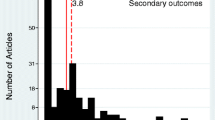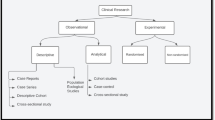Summary
The integration of clinical expertise with the best available evidence from systematic research is the foundation of evidence-based medicine (EBM). The results from a well-designed randomised controlled trial (RCT) is regarded as the best evidence on which to base treatment. In neurosurgical practice fewer treatments are based on the results of RCTs than in medical practice. The reasons are historical, ethical, practical and can be compounded by the surgical learning curve. In neurosurgical practice treatment protocols and surgical indications vary widely. In addition there is a lack of patient orientated, disease specific and generic outcome measures.
However, it is a neurosurgical responsibility to provide hierarchi cal evidence upon which treatment can be based. Comparative audit may offer a solution provided there is high quality data collection, relevant measures of outcome, a defined case-mix and a representa tive population. Comparative audit can produce bias but neuro surgeons will need to meet the challenge of EBM. Their patients will expect it.
However, it is a neurosurgical responsibility to provide hierarchical evidence upon which treatment can be based. Comparative audit may offer a solution provided there is hign quality data collection, relevant measures of outcome, a defined case-mix and a representative population. Comparative audit can produce bias but neurosurgeons will need to meet the challenge of EBM. Their patients will expect it.
Access this chapter
Tax calculation will be finalised at checkout
Purchases are for personal use only
Preview
Unable to display preview. Download preview PDF.
Similar content being viewed by others
References
Bero L & Rennie D (1995) The Cochrane Collaboration. Preparing, maintaining, and disseminating systematic reviews of the effects of health care. JAMA 274(24): 1935–1938
Britton A, McKee M, Black N, McPherson K, Bain C (1998) Choosing between randomised and non-randomised studies: a systematic review. Health Technol Ass 2: 13
Chalmers I, Sackett D, Silagy C (1997) The Cochrane Collaboration. In: Maynard A, Chalmers I (eds) Non-random reflections on health service research: on the 25th anniversary of Archie Cochrane’s effectiveness and efficiency. BMJ, London, pp 231–249
Cowan FM (1999) Evidence-based medicine: an overview. Int J STD & AIDS 10: 5–7
Davidoff F, Haynes B, Sackett DL, Smith R (1995) Evidence based medicine BMJ 310: 1085–1086
Davis AD, Thomson MA, Oxman AD, Haynes RB (1995) Changing physician performance: a systematic review of the effect of continuing medical education strategies. JAMA 274: 700–705
Dickersin K (1990) The existence of publication bias and risk factors for its occurrence 263: 1385–1389
Goodman NW (1999) Who will challenge evidence-based medicine? J R Coll Physic Lond 33: 249–251
Gerszten PC (1998) Outcomes research: a review. Neurosurgery 43: 1146–1156
McCulloch P (2000) Evidence-based surgery. Surgery 18: 205–208
Reeves B, Emberton M (1999) Tackling the quality agenda in surgery: taking comparative audit into the next century. Ann R Coll Surg Eng [Suppl] 81: 138–143
Sackett DL, Rosenberg WM, Gray JA, Haynes RB, Richardson WS (1996) Evidence based medicine: what it is and what it isn’t. BMJ 312: 71–72
Stern JM, Simes JR (1997) Publication bias: evidence of delayed publication in a cohort study of clinical research projects. BMJ 315: 640–645
Author information
Authors and Affiliations
Editor information
Editors and Affiliations
Rights and permissions
Copyright information
© 2001 Springer-Verlag Wien
About this paper
Cite this paper
Lang, D.A., Neil-Dwyer, G. (2001). Principles and Problems of Assessing the Results of Medical Treatment. In: Steiger, HJ., Uhl, E. (eds) Risk Control and Quality Management in Neurosurgery. Acta Neurochirurgica Supplements, vol 78. Springer, Vienna. https://doi.org/10.1007/978-3-7091-6237-8_9
Download citation
DOI: https://doi.org/10.1007/978-3-7091-6237-8_9
Publisher Name: Springer, Vienna
Print ISBN: 978-3-7091-7275-9
Online ISBN: 978-3-7091-6237-8
eBook Packages: Springer Book Archive




